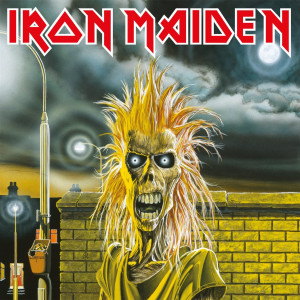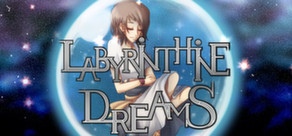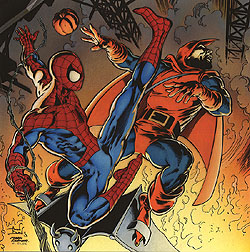 Part review, part tribute, all metal.
Part review, part tribute, all metal.This series, which I intend to finish over the summer but could also wind up reaching well into fall, will go through each of the band's fifteen studio albums in an attempt to articulate the qualities that have made Iron Maiden such a highly-respected and unstoppable force within the realm of metal music.
So why them? Well, there's a lot to say about this music...so much so that a website with the name "The Iron Maiden Commentary" exists and can keep you busy for hours if you like. This series won't go into that exhausting level of detail and will be more personalized. Believe it or not, I'm a late-blooming fan of Iron Maiden. I feel like I should have discovered this stuff as a teenager like most other fans, but I didn't. In fact, for most of my teenage years and even early college years, my musical preferences were limited to The Offspring and video game soundtracks. But metal slowly crept in over the years and before I knew it, it dominated my iPod.
It's been about two years since I became a "serious" Iron Maiden fan, meaning that I sought out songs that weren't "The Number of the Beast" or "Run to the Hills," and I keep waiting for my "Iron Maiden phase" to end. But it doesn't...and I'm not sure it will. Something about this band's work resonates deeply, and there are times when I feel like it was made specifically for me. That is, of course, ridiculous because this is the second-most commercially successful metal band in history we're talking about (Metallica is first). Still, the key to their success is somehwere in there - this band projects a sense of sincerity like few others...and the actual music...well, there will be time for that.
So here's how these entries will work. I'm being more ambitious with my blogging here - there will be a YouTube playlist featuring all the songs on the album that's in the spotlight. First, we'll have an introduction. Then we start talking about each individual track. At the end, we assess the strengths and weaknesses of the album. Finally, I'll pick four "recommended tracks" that I especially like. So let's get this started with their self-titled debut album.
Iron Maiden (1980)
The band had been performing for a few years in their native London by the time this first album came out, but this marked the beginning of what would be a decade of dominance for Iron Maiden. The lineup at the time was Steve Harris on bass, Dennis Straton and Dave Murray on guitar, Clive Burr on drums and Paul Di'Anno on vocals. Only two of these guys are still part of the band today.
Right from the start, you can see the advantage of having two lead guitarists, which was not common at all at the time. The harominzed riffs, plus the indispensable creativity of Harris's bass lines, are the blueprints for that distinctive sound. When describing Clive Burr's lightning-fast drumming, it's worth nothing that even though popular culture tends to associate metal with very fast music, it wasn't always that way by a long shot. Black Sabbath, who more or less created metal, wrote songs that were slow and ominous, a style which is now described as "doom metal." Deep Purple wrote mostly mid-tempo stuff that frequently gave way to psychedelic jam sessions that went on for ages. That was before the "New Wave of British Heavy Metal," typically referred to as NWOBHM by fans. Along with bands like Motorhead and Judas Priest, Iron Maiden sped up the tempo and ditched the jam sessions, creating a leaner and meaner brand of music.
While a lot of the core Maiden elements are present in this first album, there is one element that can be jarring. Today, the voice of singer Bruce Dickinson is synonymous with the band...but the group made two albums before he joined up. It's a safe bet that only the fans who were there at the beginning heard Paul Di'Anno's singing before Dickinson's, and now it can be a bit jarring for newer fans. He didn't have the same range, but his snarling style is pretty illustrative of how a lot of early metal singers sounded...and he'll surprise you with some of his high notes. His is the voice I picture coming out of the mouth of Eddie, the band's longtime undead mascot.
"Prowler" is the first song off the first album, and it's a winner. It shows right off the bat what the band is capable of with its catchy riff and solid solos. If the melody feels a little sleazy, it's nothing compared to the lyrics. The title character is a pervert who likes to flash women...yeah, not quite as sophisticated as "Rime of the Ancient Mariner," but what are you gonna do?
 Next up is "Sanctuary," which eventually became a single. Iron Maiden got in a little bit of hot water after the cover of the single depicted Margaret Thatcher freshly murdered by Eddie. Ironically enough, she was sometimes given the nickname "the Iron Maiden." The song itself is a good example of the punk-rock influences that contributed to this early stuff, though I could do without a few of the gimmicks - the siren in particular. Lyrically, it's pretty typical of the Di'Anno albums, which often told stories of young troublemakers on the run.
Next up is "Sanctuary," which eventually became a single. Iron Maiden got in a little bit of hot water after the cover of the single depicted Margaret Thatcher freshly murdered by Eddie. Ironically enough, she was sometimes given the nickname "the Iron Maiden." The song itself is a good example of the punk-rock influences that contributed to this early stuff, though I could do without a few of the gimmicks - the siren in particular. Lyrically, it's pretty typical of the Di'Anno albums, which often told stories of young troublemakers on the run.The next track is the ominous "Remember Tomorrow," one of the best on the album. It's structure, alternating between slow and frenzied sections, was a major inspiration for future classics like Metallica's "Fade to Black" or Pantera's "Cemetery Gates." A great example of Di'Anno's vocals and especially Harris's bass work.
With "Running Free," we have an enduring classic that still shows up at concerts. It's a little ironic, because this particular song sounds nothing like most of the material Iron Maiden has made since...you could almost mistake it for a piece of 1970s classic rock. It's still hard to resist and it makes sense that the band chose it as their very first single.
The band would create its first real epic with the seven-minute "Phantom of the Opera," which is probably the most effective use of the dual guitar sound on the album. Throughout their career, Iron Maiden would frequently center songs on various books, movies and historical events. The song remains a fan favorite, and it isn't hard to see why - The instrumental section in the middle is simply brilliant. If I have any complaints about this song, it's that I feel like Di'Anno isn't given much to do. He mostly winds up singing along to the main riff. Still, it was clearly a milestone song for the band.
"Transylvania" is an instrumental track, one of four Iron Maiden would release in their career. It's probably the best of the four, and it flows nicely into the next track, "Strange World." This song is a striking change of pace, a melancholy ballad that wouldn't be out of place on a Pink Floyd album. The bizarre lyrics are either referring to some dystopian future or a really bad drug trip...I'm not really sure which. I'm a big fan of this one, I think it features Di'Anno's finest vocal performance on the album and the guitar solo in the middle is damn good too.
The riffs in "Charlotte the Harlot" are so catchy, they should be illegal. The title character would make a handful of appearances in Iron Maiden's songs, but I always felt that prostitutes weren't really worthy subject matter for a band this intelligent. These guys eventually would write a song about the siege at Montsegur...singing about whores just seems so...hair metal. Still, the song is quite enjoyable, with a bluesy interlude that comes out of nowhere.
Last is "Iron Maiden," off the album Iron Maiden, by Iron Maiden. See a pattern? The song remains a metal anthem, thanks to its distinctive harmonized riff and drums that are tailor-made for head-banging. Lyrically, it's laughably weak, but that can be forgiven this early in the game. It became a tradition at concerts for someone dressed in the Eddie costume to emerge while this song is played.
___________________________________
Overall Strengths: This first album shows off the versatility of the band right away, introducing a number of songs that are still considered classics.
Overall Weaknesses: The lyrics and subject matter aren't nearly as interesting as some of the material that would come later.
Recommended Tracks
Prowler
Remember Tomorrow
Phantom of the Opera
Strange World
Next: Guitarist Adrian Smith joins the band for the second album with Di'Anno on vocals - the ambitious "Killers."




No comments:
Post a Comment